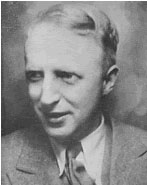Edman, Irwin — finding the good life amid confusion of too much knowledge [800 words]
There are two reasons why it is difficult for a contemporary to be at all certain that he knows what he believes or that he can express it candidly. Modern philosophy has taught us for three centuries to be self-conscious about the veil of consciousness that lies between us and things, the dye of subjectivity that colors and poisons our awareness of the world about us.
Modern psychology, especially psychoanalysis, has made us suspicious of the validity of those tenets about which we think we are most in earnest. It has made suspect the deeper motives that lie behind our verbal ones—the instincts that masquerade as faiths and the lusts that parade as ideals. We are deeply dubious that we can know or say what we want, what we are, what we think, what we see…
Every man now knows too little and too much to set down any easy ultimate. The world of knowledge has become too complex and organized; the world of belief has become too distracted and incoherent. No one can speak with authority save on the smallest field of inquiry…
Yet, the present writer, for one, believes this self-consciousness to be unwholesome and unwarranted. One does not need the patter of the new physics to recognize the sky above one’s head or the earth beneath one’s feet, nor will all the newest doctrines of the relativists be able to abolish their omnipresence. In these matters, I think it is important to be simple, almost simple-minded. For all the complexity of modern scientific formulas, it is the same old sky with the same things beneath it. Those things include my body and the bodies of other people, the plants and animals, the rocks and stars…
A
pang of hunger or of love, a loaf of bread, a beautiful face, a
stumbling in the dark or a burst of music are all the testimony
and all the science I need to give me a sense of the hang of things,
and to make me realize that those folds as they hang are the folds
of matter…
I believe then in the common world of things as they are about us,
the things I touch, see, taste, smell, hear, the world that earthy
poets celebrate and that worldlings feast and wanton in (the same
world which sustains and generates those raptures whose earthiness
is so exquisite that one is tempted to call them ethereal).
I believe also, though more superstitiously and not on such good evidence, that there is a kind of order in things that for short may be called mechanism, and a fundamental substance, whatever other fancy or pretentious names it be called, that is matter. In this order at a certain remote epoch there was generated life and, at a certain epoch in the history of life, that nervous speck of star dust we call man.
But it neither dismays nor distresses, indeed it scarcely impresses me, that in comparison with the whole nature of things, man is so late, so tiny, and so unregarded an accident. It seems to me not arrogance but honesty to admit, nay to insist, that that last, late incidental fleck of sport of matter called humanity, and the human viewpoint, interest me most.
From nature’s point of view (if she had any, which she has
not), I may be quite unimportant. From my point of view, nature
is at once the spectacle I behold, the theater I act in, and the
materials and possibilities I can use. And whatever else anybody
else may say, he acts—and is compelled to act— as if he
believed precisely that…
I do not believe that life in general or the world in general has
any meaning. I do not think there is any meaning in saying that
they could have. But many things, all things in nature, may have
meaning; and any life may generate its own purposes or ends…
I know I cannot live forever, but I know also that I can know and have experienced immortal things. It is quite clear to me what sort of activities render life to me (and I suspect to a good many others) meaningful and rich, and in which direction they lie. The direction is that of abundance, vitality, and clarity. The activities range from the immediate pleasures of the senses to the wide sweep and contemplations of the mind.
There are periods of creation, or enjoyment, and not least of shared enjoyment, when I find that I do not question whether life is good or worth living. For at such times, and for the time being, such questions are affirmatively answered without being asked. But the Good Life to my mind does not consist in scattered moments of felt delight, but in such a general pattern of living as would tend to fill life with richness and significance.


